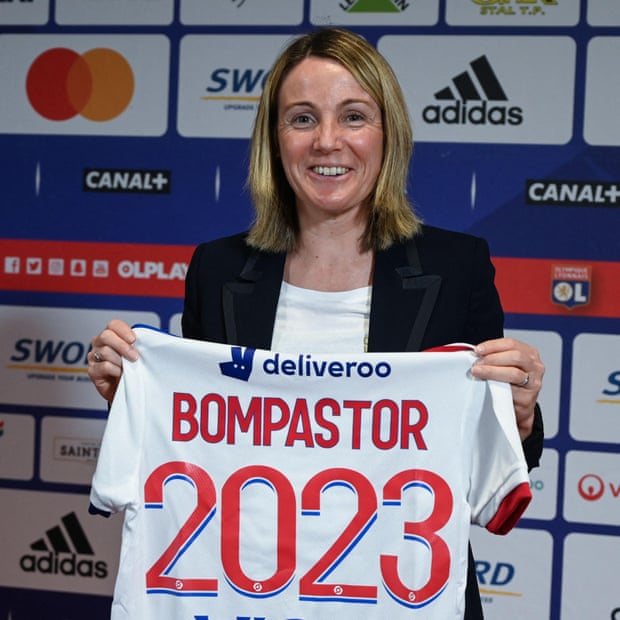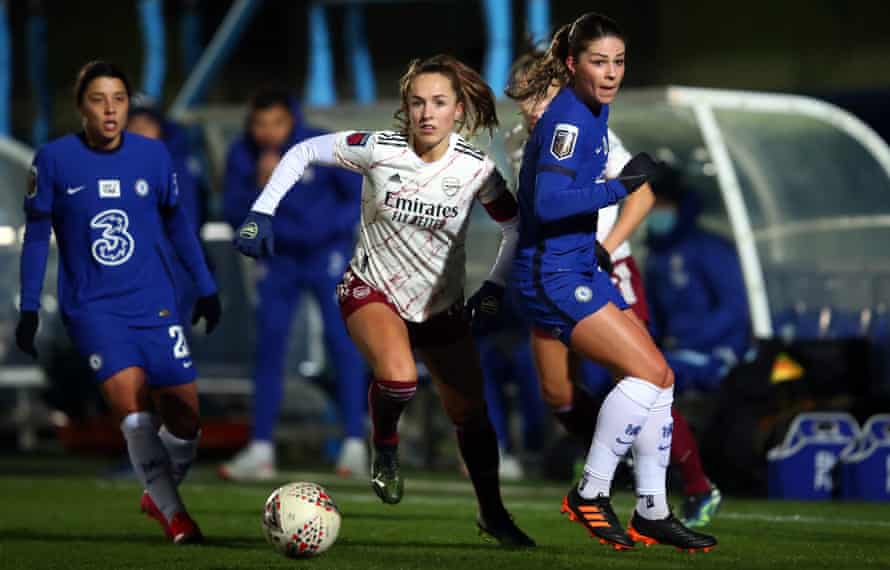The European Super League saga may, for now, be over but fallout from the shambolic breakaway attempt rumbles on.
“As soon as practicable after the start of the men’s competition, a corresponding women’s league will also be launched, helping to advance and develop the women’s game,” the ESL launch statement proclaimed.
If the women’s game, in its infancy and reliant on cooperation, had been dragged along for the ride the consequences would have been huge. Equally, if the ESL launch had not included this token nod the effects on the women’s game would probably have been as detrimental.
In many ways the ESL debacle has acted as a warning of where the profit motive will take the game and, for women’s football, where being aligned with the men’s game could lead.
Women’s football is riding the crest of a wave, but in the drive to rapidly progress and secure the finances for clubs to maintain professional and semi-professional teams it has been tied ever closer to the model of themen’s Premier League and to men’s Premier League clubs.
For the majority of its existence women’s football has relied on goodwill and trust and, with nothing financial to be gained from involvement in the game, it could. Now, with increasing sponsorship deals, the Barclays title sponsorship of the Women’s Super League and the broadcast-rights deal between the WSL and Sky Sports and BBC Sport, it is inevitable the vultures will start to circle.
Quick Guide
Bompastor named Lyon's first female head coach

Europe's most successful women's football team, Lyon, have hired a female coach for the first time with former academy director Sonia Bompastor replacing Jean-Luc Vasseur.
Bompastor (picture), a former France midfielder and defender who played for six seasons at Lyon, has agreed a two-year contract. "I am a competitor, and I like challenges," the 40-year-old said. "We have everything we need to win the title and rediscover the [Lyon] DNA on the pitch."
The seven-times European champions parted ways with Vasseur after the Women's Champions League quarter-final defeat to rivals Paris Saint-Germain, ending a run of five straight European titles. Lyon also trail PSG in the French League by a single point.
The potential of women’s football to bring a return, in the medium to long term, is an idea that has been put to clubs and sponsors to encourage them into the fold. That is not necessarily a bad thing; investment is important if the game is to grow. But there is increasingly a need to be more alert to the risks involved when individuals or organisations put their interests above that of the broader development of the game.
Women’s football needs to protect itself from self-interest and examine the structures designed to safeguard its future. Two questions need to be asked after the ESL mess. First, how can women’s football avoid being affected by ESL-style manoeuvring in the men’s game? And second, how can it avoid going down that route?
Independence and sustainability are key. Increasingly, it is hard to see a healthy future for the women’s game if teams stay tied to the men’s teams. However, no club that has invested with one eye on a potential future bonanza return is going to relinquish control of their women’s side just as the game is showing early signs of profitability. They will want a piece of the pie and, perhaps more significantly, will not want the women’s game to champion a more progressive and fairer way of doing things.

Independence and sustainability, if achievable, are not all that is needed; the way women’s football is governed needs to change, too. The FA Women’s Super League and Women’s Championship board has members from six clubs to represent the 23 teams in the top two divisions. Of the six, four are from WSL clubs and two represent Championship teams. Five of the six are attached to men’s Premier League teams, and all four of the WSL club representatives (Arsenal, Chelsea, Manchester City and Tottenham) are part of the “Big Six” that could not resist the pull of billions promised by the ESL.
There is no one-member-one-vote rule à la the Premier League, where two-thirds of clubs must agree to changes. Instead, women’s teams have to trust that those elected to represent them will put the broader interests of clubs and the game above their own.
The Premier League model, where each club is a shareholder of the league, is not necessarily the solution but when the seeds of self-interest and profitability have been planted it is only natural a more equal footing for clubs in discussion-making will be needed.
Fan representation and ownership are often cited as key checks, preventing rogue owners and keeping club and community interests above profit. In the women’s game there are clubs that champion fan involvement (on more than a superficial level) and run or have run independently but they are a dying breed, viewed as necessary sacrifices in search of quick growth. Perhaps it is time to rethink that strategy and bring fans into women’s set-ups before it becomes impossible.
The Fiver: sign up and get our daily football email.
It is generally accepted the FA will not run the women’s game for ever, with the governing body forced to balance building a profitable league as a not-for-profit body with other commitments. So this board and form of governance is a stopgap on the way to it being handed on, likely either to the Premier League or, scarily, to private-equity investors (as Sky reported on Saturday). The FA is exploring options through an ownership review. However, it has the power to set up the women’s game as something better.
The moral of the ESL story is that short-term gain comes at a price and that price is usually detrimental to the heart and soul of football.
from Football | The Guardian https://ift.tt/3vrcq76
via IFTTT

No Comment